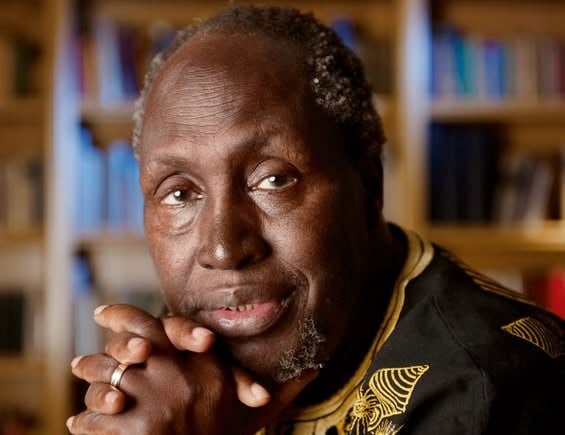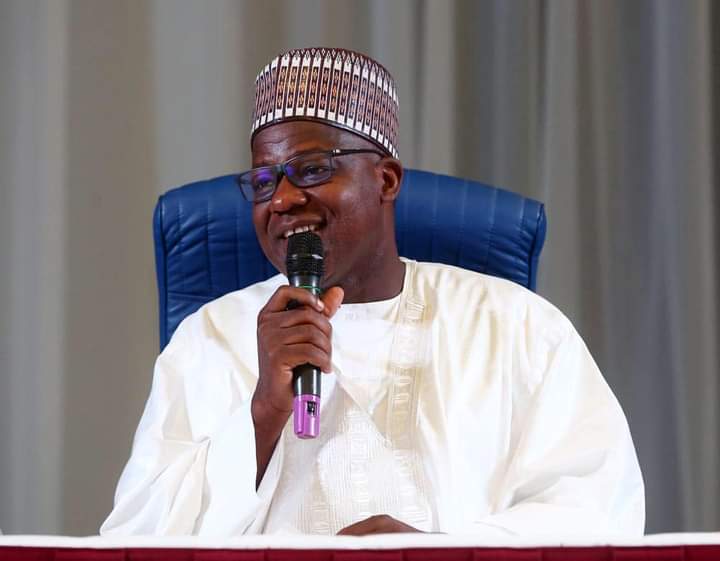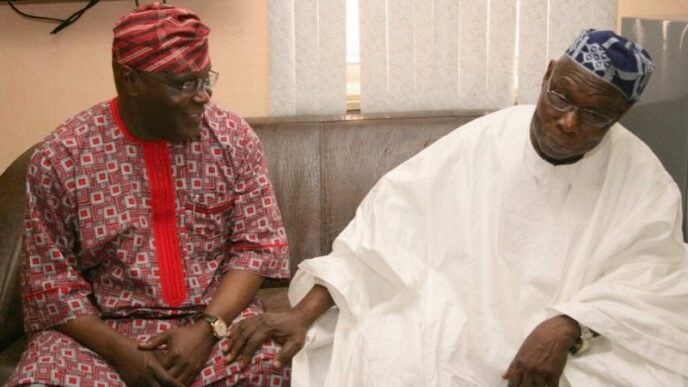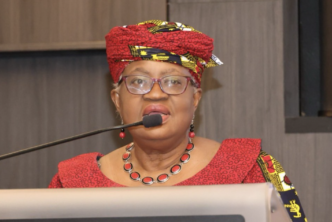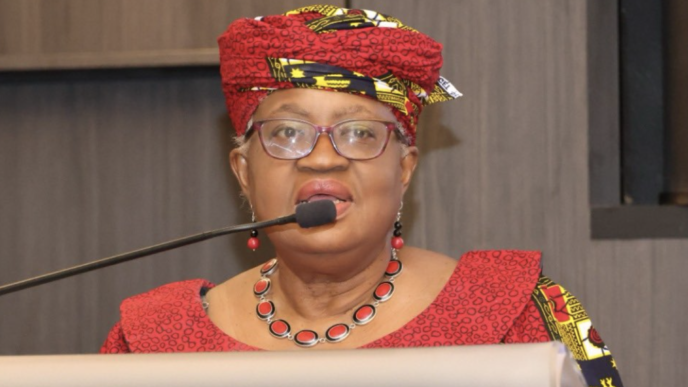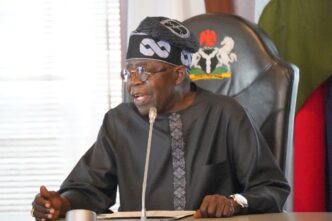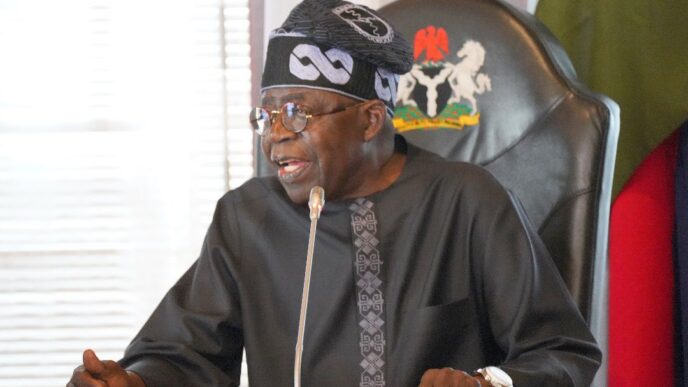“I am Matigari, the one who has returned. I am Matigari, the one who will never rest until I find truth and justice.” — Ngũgĩ wa Thiong’o, Matigari (1986).
“Where is truth? Where is justice? Where is the law? Where are the patriots? Where are the people?” — Ngũgĩ wa Thiong’o, Matigari (1986).
I do not know the East African equivalent for griot, but if an African is deserving of the title “literary griot,” then it is Ngũgĩ wa Thiong’o, for he was an unparalleled teller of memory, artfully communicating oral history into the written word. Ngũgĩ wa Thiong’o once sent a man named Matigari into the world—armed, but not with bullets or a machete, but with questions. Uncomfortable questions. In the pages of the world where Matigari breathed, truth was not a static thing that any man owned, but an armament forged through suffering, sharpened by struggle, and made sacred by memory. Today, with Thiong’o’s passing, we are left with the same questions his fictional character posed, only now we must attempt to answer them without the steady voice of the man who was comfortable with discomfort. I sometimes imagine that Thiong’o might say, “Truth is not born in comfort—it is wrestled from the womb of discomfort, bloodied and howling into a world that would rather not hear it.”
Thiong’o wrote in Matagari, “The truth is simple. It is the lies that are complicated.”
Advertisement
His truth was never complicated. It was bold, clear, and burning. He believed that language carried with it an entire cosmos—its metaphors, its logics, its moral imagination. He knew that we might be limited, reduced in oxygen, if we could not dream in the languages of our mothers. In his conviction that language is not neutral, he offered us a mirror: one that reflects the violence of translation, not as an innocent linguistic shift, but as an epistemic rupture—a robbery of context, cadence, and cosmology. As someone shaped by the long shadows of migration and diaspora, I feel the dissonance that Ngũgĩ so powerfully named intimately. To be rendered in translation without consent is to become ghostly, spectral, present yet estranged from one’s voice.
Thiong’o was many things— novelist, playwright, essayist, scholar, dissident, decolonial visionary. But more than any of these many things, he was a prophet with ink-stained fingers. In my limited imagination, I sometimes ponder the great prophets of the great religions, and I also consider less celebrated prophets like Thiong’o, Achebe, and Bob Marley.
When a great tree falls in the forest, the earth shudders in mourning, but also listens—more attentively than ever—to the echo it leaves behind. The passing of Thiong’o is one such tremor, felt not only in African letters but in the soul of global literature. His departure is more than the loss of a writer. It is the silencing of a voice that dared—unflinchingly—to speak to the marrow of our postcolonial being, to question the scaffolding of empire embedded in our syntax, and to remind us that language is not merely a tool but a terrain of struggle.
Advertisement
Thiong’o saw what colonisation had done to indigenous languages, indigenous minds, and indigenous identities—and dared to challenge it not only through critique but through practice. By choosing to write Matigari in Gikuyu first, he placed the African reader—African listener at the centre of the narrative universe (Ngũgĩ, Decolonising the Mind, 1986). This was not a gesture of cultural nostalgia. It was a radical political act. An act of re-centring.
“Matigari has gone to the mountains. When the time comes, he will reappear. Then the nation shall rejoice, and children shall eat honey.”
Thiong’o himself has now gone to the metaphorical mountains. He has returned to the realm of ancestors, where language is not bound by alphabet, and time folds like cloth. But his words remain among us, fiercely alive, uncolonised. Like Matigari, he has become a myth and memory—a whisper in the wind for those willing to listen, a call to action for those daring enough to respond.
Yet, even in the absence, Thiong’o’s spirit is insurgent. His legacy is a torch still burning, still demanding to be carried forward. And so, we must ask: who will rise to hold it?
Advertisement
This torchbearer need not be singular. They may emerge in constellation—poets, storytellers, coders of memory—each rekindling the ancestral fires with the flint of mother tongues. They will return to orality not as nostalgia, but as a site of innovation, where drumbeat and dialogue converge. They will write not to be consumed by global markets, but to make holy again the village square—whether digital or real—as a site of communal dreaming.
The torchbearer must write and speak in ways that rattle the cages in which truth has been trapped. They must recognise that linguistic hegemony is not a relic but a present danger. English can no longer be the sole key to the literary house of Africa; in addition to the English language, we must build new rooms in Shona, Hausa, Yoruba, Tigrinya, Igbo and beyond. These languages convey different silences, metaphors, and grammars of care and resistance. The future of African literature must be rooted in this plurality—global yet local, grounded yet porous.
In a world increasingly unmoored from truth, from community, from the soil, the Thiong’oian vision offers a path back, not backwards, but downwards, into depth. Into roots. Into stories passed from grandmother to grandchild, not just in content, but in cadence as well. The new torchbearers will remind us that Africa is not a monolithic place, but a rhythm. Not merely a source of content, but a cradle of form.
And perhaps when these torchbearers tell their stories, Thiong’o may hear from the mountains and smile.
Advertisement
“Children shall eat honey.” Ngũgĩ wa Thiong’o, Matigari (1986).
Nwanze is a healthcare professional and systems thinker based in Ohio.
Advertisement
Views expressed by contributors are strictly personal and not of TheCable.

